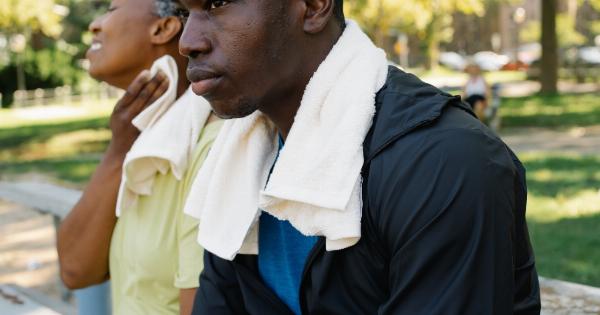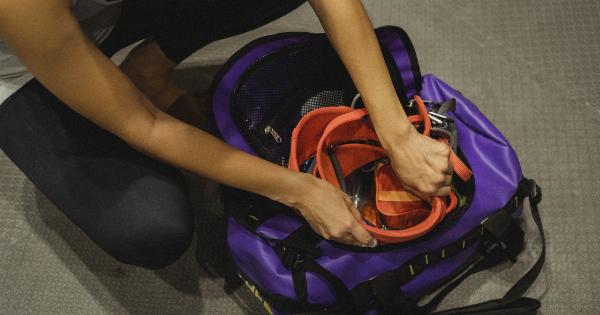ISA or the International Society of Arboriculture is a non-profit organization that is dedicated to promoting healthy trees and proper tree care.
They provide educational resources and training on tree care and maintenance to various professionals and residents across the world. One of their focuses is on preventing heat-related illnesses in citizens.
Why is Preventing Heat-Related Illnesses Important?
Summer temperatures continue to rise, and as a result, so does the occurrence of heat-related illnesses. These illnesses can be deadly and can affect anyone, regardless of age or health condition.
The most commonly experienced heat-related illnesses are heat exhaustion and heatstroke. Individuals with existing health issues or who work or play outside for extended periods are at a higher risk of developing such illnesses. It is essential to be able to recognize the symptoms and know how to prevent them.
The Importance of Trees in Preventing Heat-Related Illnesses
Trees play a vital role in preventing heat-related illnesses. Heatwaves result in an urban heat island effect in cities, where temperatures are much higher than surrounding areas.
Trees provide shade and lower the temperatures in their vicinity, making them a key factor in reducing the heat island effect.
Trees also help to cool the air through a process called transpiration. This process involves the release of water vapor from the leaves of a tree, which cools the surrounding air.
Trees also help to improve air quality, providing fresh oxygen and removing harmful pollutants. These benefits of trees are invaluable in mitigating the impact of heatwaves and reducing the risk of heat-related illnesses.
ISA Resources on Preventing Heat-Related Illnesses
ISA provides a range of resources for communities, professionals, and individuals on how to prevent heat-related illnesses. These resources include educational videos, training programs, and informational guides.
Communities and professionals can take up ISA’s Tree Risk Assessment Qualification (TRAQ) course, which trains professionals on tree risk assessment and hazard identification. This course helps communities and professionals identify and mitigate risks associated with trees, including those that can cause heat-related illnesses.
ISA’s resources also include information on how individuals can plant trees to improve their community’s health and reduce heat-related illnesses. Tree planting is a powerful way to reduce the effect of urban heat islands.
ISA provides information on selecting suitable tree species, proper planting techniques, and tree care and maintenance.
Proper Tree Care and Maintenance for Heat Mitigation
Proper tree care and maintenance are essential in heat mitigation. Trees that are regularly cared for are healthier and contribute more significantly to shade and cooling. ISA provides the following tips for proper tree care:.
- Watering: Trees need adequate hydration, especially in extreme heat. Water trees thoroughly, ensuring the water reaches the roots. Watering trees twice a week in the summer months is recommended.
- Pruning: Proper pruning techniques remove dead and weak branches, ensuring trees are healthy and have enough foliage for shade and transpiration.
- Mulching: Mulching around the base of trees helps retain moisture and regulate soil temperature. Three to four inches of organic mulch is recommended. But be careful not to mound mulch against the trunk of the tree, which could lead to decay and pest infestation.
- Fertilizing: Trees need essential nutrients to maintain their health. Fertilizing trees once or twice a year with proper nutrients is recommended.
Other Measures to Prevent Heat-Related Illnesses
In addition to proper tree care and maintenance, there are other measures individuals can take to prevent heat-related illnesses:.
- Stay hydrated: Drink plenty of fluids, especially water.
- Avoid outdoor activities during peak heat: Exercise or outdoor activities should be done during cooler times of day, like mornings and evenings.
- Stay cool: Wear light-colored, loose-fitting clothing and take frequent breaks in shaded areas or air-conditioned buildings.
- Check on others: Check on elderly neighbors, young children, and those with existing health conditions to ensure they are safe and hydrated.
Conclusion
Heat-related illnesses are a serious concern, especially in summer months. It is important to take measures to mitigate their occurrence.
Proper tree care and maintenance, along with other preventive measures, can go a long way in reducing heat-related illnesses. ISA is committed to providing resources and training to communities and individuals to prevent heat-related illnesses and promote healthy trees and proper tree care.






























